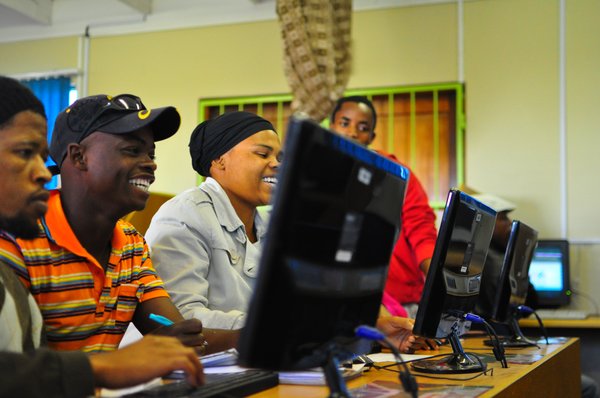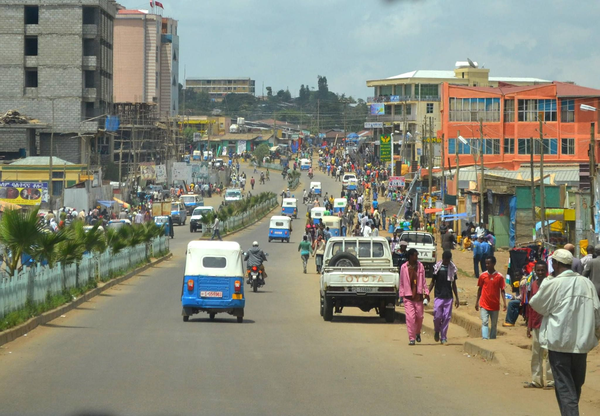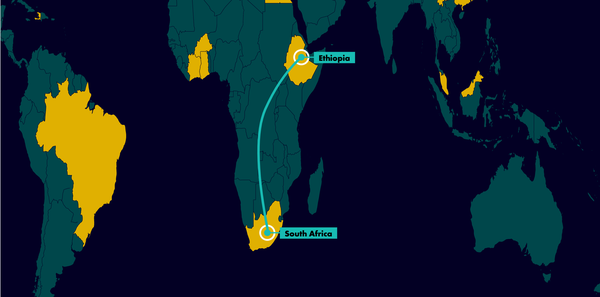This post was written by Greg Dor.
As part of our Impact Interventions, our team in South Africa (University of Cape Town) have facilitated a process of developing economic and political solidarity with working-class migrants. The team have scoped the potential for rolling out education and training sessions with coordinators of the Back to Work Campaign (B2WC), an organisation that focuses on unemployment. The aim is to strengthen B2WC at different levels and to support its initiatives to facilitate and amplify the building of migrant solidarity.
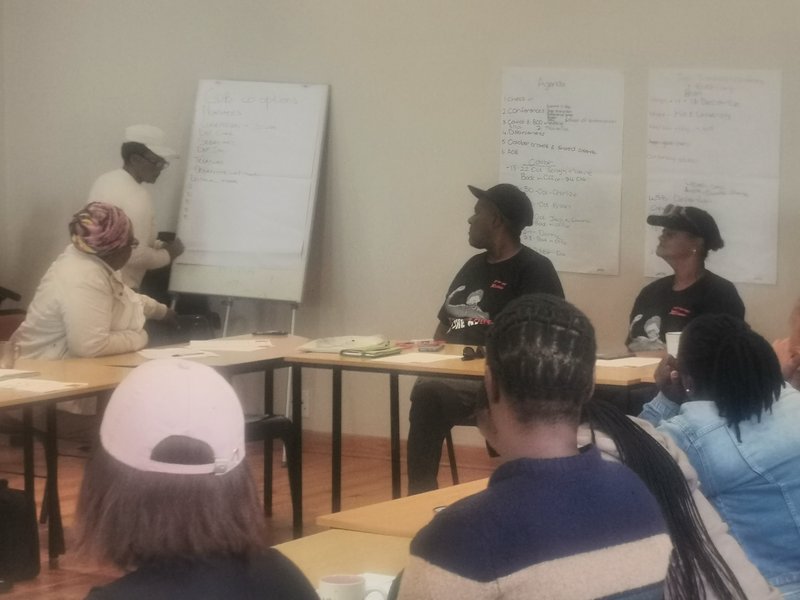
B2WC Context & Intervention
At the beginning of 2023, the Back to Work Campaign (B2WC) focused its attention on the process of launching a new trade union, the Municipal Outsourced and Precarious Workers Union (MOPWU). The leaders and members of the B2WC faced difficulties with the union (South African Municipal Workers Union - SAMWU) under which the campaign was formed and had been operating. They encountered challenges, notably in accessing resources and finances, to which their members had contributed over many years.
The intention was to support the initiative that aimed to launch a new union covering not only municipal workers but also extending to organising other outsourced and precarious workers, many of whom were migrants. However, the B2WC encountered difficulties in getting MOPWU off the ground. This was mainly due to an inability to meet the stipulated legal requirements for setting up a new union, coupled with a lack of capacities and resources. As a consequence of this setback, the activities of the B2WC, including its broader efforts and campaigns, stalled in the early parts of that year.
There was a recognised need to refocus activities and try to assist the campaign in renewing itself. The team at UCT assisted in initiating the process of setting up meetings to bring together a small group of campaign members. A Solidarity Forum was established with an emphasis on establishing regular contact among themselves. The aim was for this group to meet regularly on a fortnightly basis and collectively discuss issues related to building class-based solidarity. This intervention aimed to facilitate solidarity between the struggles in different areas that members of the B2WC were already engaged in. Furthermore, it endeavoured to build solidarity and make connections with other struggles that were not necessarily part of the B2WC but also addressed issues faced by working-class people, including the struggles of workers and migrants in the workplace and communities.
Through this process, the group was expected to develop important linkages with one another, collectively taking up the task of promoting solidarity to build a more cohesive B2WC. It also continuously sought to link up with other struggles, reaching out to other groups and organisations, drawing in others along the way to establish and sustain connections.
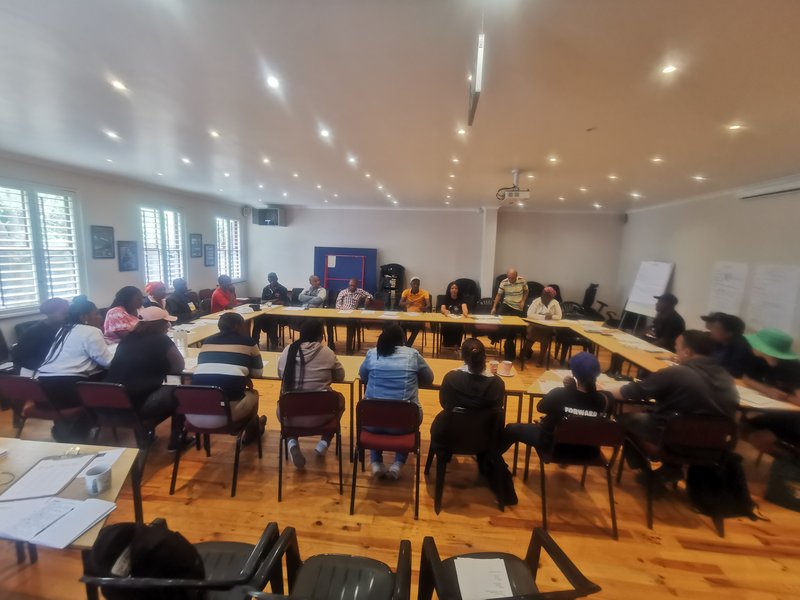
In the fortnightly meetings, participants identified and discussed the main issues they faced on a daily basis. Each participant was given the chance to speak about the issues affecting them personally and speak about the main issues in their communities. The issues that emerged as key in these discussions included healthcare, electricity, employment, cost of living, food security, housing, service delivery, dignity, and violence. The group repeatedly came back to these issues, discussing who is responsible for causing these issues, tracing their origins back to the role played by capital and the government, and exposing the people who are scapegoated and behind whom they hide.
For instance, migrants were blamed for a host of social ills, from drugs and crime to stealing jobs, but they did not cause these issues and also suffered their consequences. The group discussed this further and identified other communities in society facing and struggling around these same issues. In this way, they identified individuals and groups of people, encouraging solidarity building.
The intention of this intervention, starting the Solidarity Forum, was to start small, on the ground, and meet regularly with a group of the same people. Over time, they built a consistent group that drew in others, growing from only two to a handful of people who attended irregularly, to a consistent group of around 15. The aim of this initiative was also to feed into and support other initiatives as the B2WC looked to revive itself and take up the task of setting up the new union. There were some nascent attempts in the last weeks, led by some of the old stalwarts of the campaign and in collaboration with another support organisation - an NGO called the Alternative Information and Development Centre - AIDC. They would be looking at how to link up these efforts in the coming weeks.

